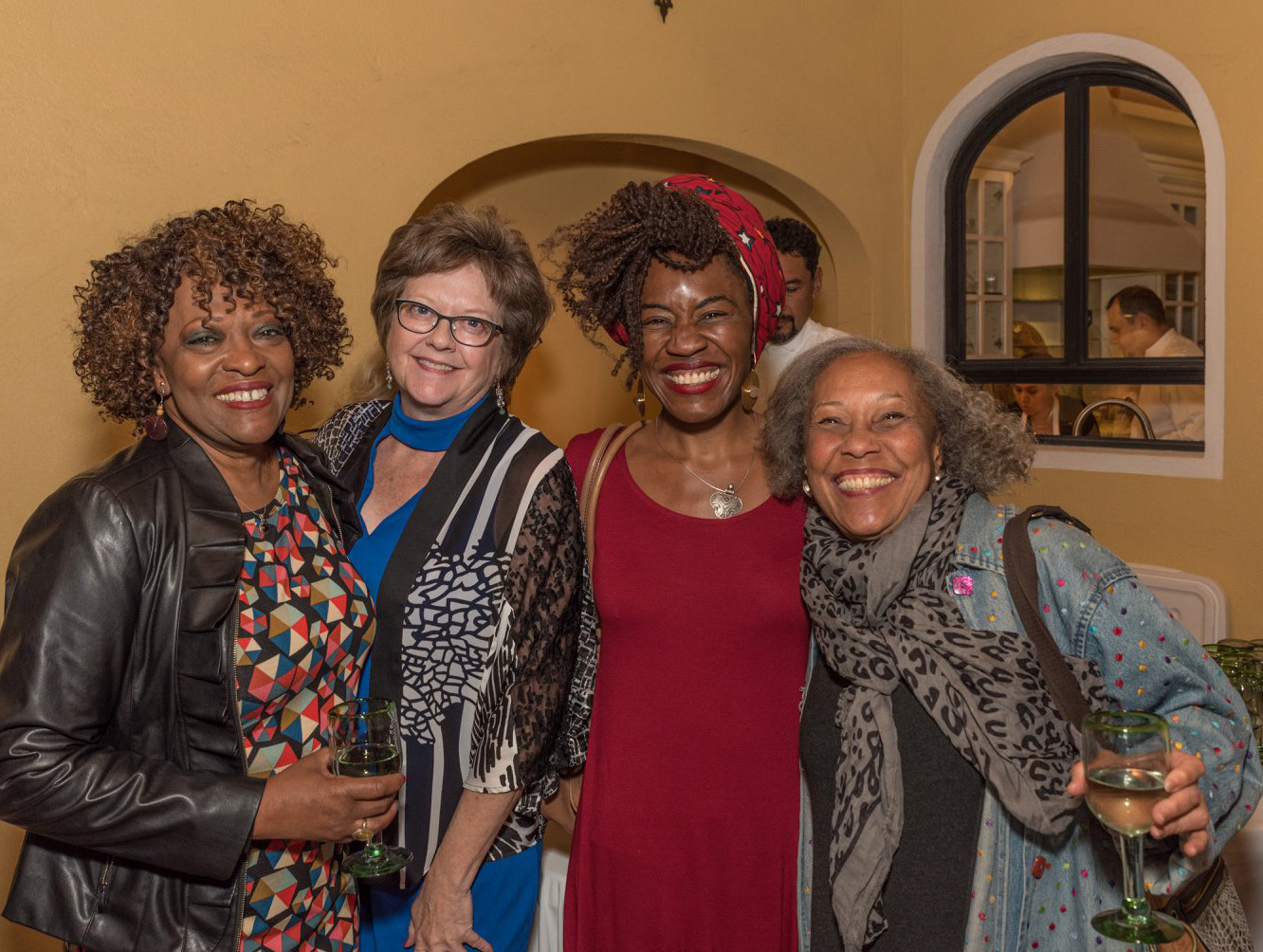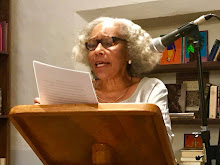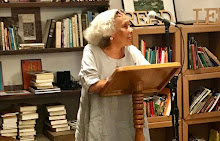I wasn’t excited when Emilia
Robinson, director of Chacalit, Chacala’s
first Literary Festival, asked me to teach during my writing residency. Who
wanted to take a writing class while they were chilling at the beach? Maybe
some of the locals but I’d have to teach in English, and how many locals were
bilingual? Would beach-adled minds be serious? I’d feared the class would be
painfully small, six at most. Twelve attended my first class and only one was a
Mexican local. Most were foreigners from the U.S. and Canada.
I was surprised at the size
of Chacala’s expat community, proportionally at least as large as San Miguel’s.
Hollywood has infused my notion of who hangs out in a small Mexican village,
people who need to hide—hoodlums, druggies or errand heiresses (or heirs). None
of the expats I met in Chacala fit this mold. They included a retired Canadian
judge; a Mormon couple from Utah; a yoga instructor who had a traveling
practice (Hawaii will be her next stop); and a real estate who’d come to Chacala
for a quarter to sell local properties. Some were full-timers, others,
part-timers who owned homes. I understood the retirees like David, who moved
there from Seattle. David came more than three years ago and spearheads Chacalart, the visual art component of The
Chacala Cultural Foundation. But young people who are still working and have
families—why would they choose to live in a place where nothing happens. I
spoke with some of them to learn why they’d chosen to move to Chacala.
Love brought Emilia Robinson—an
Oxford grad who studied French and Italian language and literature—to Chacala. When
she was 19, a volunteer project brought Emilia to Guadalajara to teach English.
She met husband, Arturo, three days after she arrived. When Emilia returned to
study for her degree, Arturo decided to check out London. He loved it, and
stayed working primarily in food services. They toyed with opening a Mexican
restaurant in Oxford after Emilia finished her degree, but discovered
Chacala—the perfect beach town that only lacked one thing, a friendly place to
get good coffee and decent wine. In 2007, she and Arturo opened a breakfast
café that evolved into Chac Mool, a
beachfront restaurant that is open from dawn till past dusk. Now that Chac Mool
is established and Emilia has two girls, she has relinquished on-site
responsibilities and works from home.
Emilia also works to impact
her community. Chacala will grow, she knows that, but feels that the present
community is in a position to influence the direction of that development.
She’s proud of Chacala’s efforts to improve the formal education of the local
children. This tiny community has a Waldorf & Montessori School that offers scholarships to 90% of their students.
And Emilia has been the motivating force behind Chacala’s Saturday market and
has established Chacalit. “It is easier,” Emilia said, “to make a difference to
a small town.” She thinks bringing musical, artistic and literary events to
town enriches experiences for local people and visitors, including
opportunities to perform and produce work. They also bring high quality artists
to the area. Emilia feels the arts are empowering, sustainable and encourage
diversity, qualities that can benefit her community.
Debbie Slobe described her family
as “typical suburbanites.” Before they came to Chacala they lived in
Louisville, Colorado, a city that multiple national publications rated as one
of the top five places to live in the U.S. Debbie, a manager at a nonprofit PR
agency, and husband Brian, a middle school science teacher, choose a place with
good schools, safe neighborhoods and a sweet little downtown to raise their
daughter. But that’s where typical ended. Both had lived and worked outside the
U.S., and they planned to take an extended break from everyday life before
retirement. The suburbanites I knew weren’t thinking like that, hadn’t lived in
places like South Africa before they started families. The Slobe family isn’t
my idea of typical.
It took four years to save for their year off. Debbie and Brian knew
they wanted to spend their down time in Mexico—a place they’d both visited, a
culture they both loved, a place where they could improve their Spanish. The
cost of living was inexpensive enough to make a year off feasible and they’d
learned, from previous trips, that Mexico was family friendly.
They considered Sayulita but it wasn’t for them—too expensive, too
crowed and polluted. They weren’t sure where they would land until a friend
recommended Chacala. Their friend loved the village when she stayed at Mar de Jade, Chacala’s yoga, wellness and
vacation retreat center and told them about the town’s new Montessori school.
They arrived last November. They should have gone home last month but have been
so happy with their decision to relocate in this fishing village that their
one-year sabbatical has morphed into two. To finance this additional year,
Debbie has gone back to work again, part-time, through the Internet, as a
freelance communications consultant.
Jen Barnett and husband Boe have not taken the beaten-path. They lived
in Alaska for 15 years before relocating to Mexico. Jen discovered Chacala in
2002 when she brought a group of her homeschooled high school students from
Alaska to Chacala for language, culture, & leadership studies. After the
program was put on hold because of increasing safety concerns with travel to
Mexico, she and Boe vacationed in Chacala as a reprieve from the harsh Alaskan
winters when they could afford it. Mid-way through their Alaskan chapter, they started
a microbrewery and restaurant with another business partner. It grew so rapidly
that they quickly found themselves up to their eyeballs in a lifestyle they
didn't enjoy. They bought a 1968 Airstream, sold everything that didn’t fit
inside it and started to drive south in search of a new place to call home.
They wandered aimlessly for a year and a half before they headed to
Chacala uncertain about which direction they wanted to take—someplace all too
normal like New Mexico or move somewhere halfway around the world that would cut
themselves further from convention. They didn’t do either; they stayed in
Chacala. Their children, Enli (ten), and Parker (six), love life there and are
almost bilingual. Previously homeschooled, they are attending school for the
first time at the local Waldorf and Montessori School. Boe, a poet and writing
teacher for homeschooled high school students, has secured enough work online
to keep the family afloat. She and Boe are about to open a little artisanal
brewery in Chacala that they hope to build slowly until
it sustains them.
Kristina Kieffer and her husband Andy were living in San Francisco. Andy
developed business software for various companies and Kristina had been a global
project manager in the high tech industry. They were good at their work and it
generated a ton of money, recognition, and the opportunity to work with smart
people from many parts of the world. But it wasn’t a calling for either of
them. Adventure was their calling, backpacking to far off lands. Andy developed
a passion for surfing, Kristina’s joy came from her volunteer work assisting
refugees adapt to their new U.S. lives.
When their daughters were born, Kristina became an at-home mom. The toxic combination of social isolation,
boredom, grey San Francisco skies, and dwindling finances, she said, pushed
her into post partum depression. They were walking down a beach in Puerto
Vallarta, during a spur of the moment trip, when they decided to pull up stakes
and start over. It was important to them that their children learn another
language and culture so they decided on Mexico. They wanted a city because of
schools, financial opportunities, and easy access to an airport that was close
to the warm water surf Andy required. They decided on Guadalajara, a huge city
only 3½ hours from the beach. Their work is variations of the kind of work they
did in the States—Kristina teaches business English and coaches young
professionals on their careers. Andy opened a tech investment fund that focuses
on Mexican business problems.
There is a famous surf break just around the point in Chacala. The Kieffers
came for a long weekend so Andy could check it out and ended up buying the
house they’d rented. They love Guadalajara but it's huge and noisy and dirty. Their
girls are 12 and 14 now and they expect to spend more time in Chacala as they
get older. And activities of Chacala’s Cultural Foundation will only make the
village more appealing. Kristina had only planned to spend the weekend in Chacala
but extended her stay so that she could take the memoir workshop.
Emilia thinks the reason they are drawn to Chacala is the simplicity
that comes with the old school way of life. Chacala’s current residents have
decided that living simply does not have to mean devoid of culture. They have
found ways to attract cultural happenings that generally are found in more
populated cities to their village.



